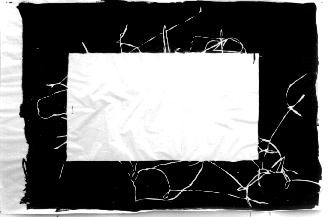When I said in my video that capital has the power to create value greater than itself, I was articulating a formula expressed by Marx of the process of exchange from the perspective of the capitalist: M-C-M'.
This simply means that the capitalist will exchange money (M) for some commodity - generally the instruments and materials to be consumed by the means of production, or the means of production itself, in producing the final commodity. But afterward the capitalist intends to exchange the commodity for a profitable amount of money exceeding the value of M (M').
This distinguishes capitalist production from all pre-capitalist modes of existence, in which the formula of the individual in production is inverted: C-M-C. The merchant or artisan will sell his commodity for money, only to exchange that money for some other commodity he needs. Production of a commodity is merely a means to acquire other commodities he needs but which others make. Money here plays the role of a measure of value and medium of exchange.
In capitalism, money that is capital is spent to create more money, or what Marx termed 'production for production's sake.' This tendency to accumulate wealth under capital - or commodities, really - reveals alienation in the basic unit of the market: the commodity. The commodity's value, which is the cost of its production for the capitalist, is in constant tension with its 'use-value.' Rather than what it can earn the owner of the commodity in sale, the use value is what need or want it can satisfy its possessor. In proportion as the use value rises (through increased productivity), the value of the commodity falls (the productivity of labor by which workers are exploited reduce the time the laborer spends in production, and this reduces the cost while increasing the output in inverse proportion.
Nevertheless, my treatment of alienation in my video is intended to show that the process of economic production above is not the 'revolutionary theory' of the workers. It is a bourgeois alienation of the human relations and processes by which this economic contradiction intensifies. The commodity, as Marx might have observed in Capital, where his analysis begins with its character, is not the basis of capitalist antagonism. Every commodity, as Cornelius Castoriadis remarked, is an 'embodiment of class struggle.' Every defective good tells a story about class struggle, an act of defiance by the worker. Thus, the basic unit of contradiction is the shopfloor of the factory, with the workers on the one hand, and the machines and their owners on the other. This is where revolutions begin and end, and we may say that the alienation of the use-value of a commodity, or its domination, by its economic value on the market, is an instance of the alienation of the worker by the market and machines, for he/she too, like whatever they produce, is also a commodity, subject to the same laws as any other.
This is not a new insight but an important one to keep in mind as we proceed in further, more erudite, areas of militant leftism.

No comments:
Post a Comment